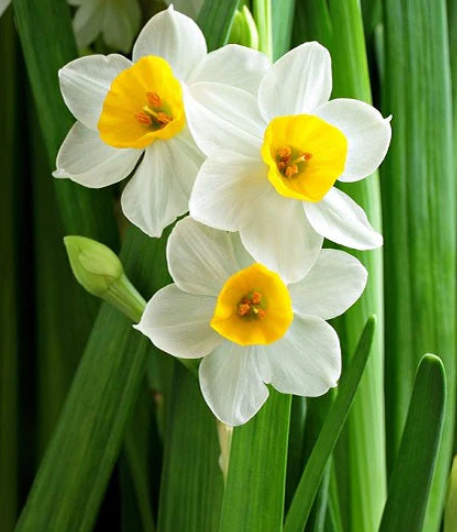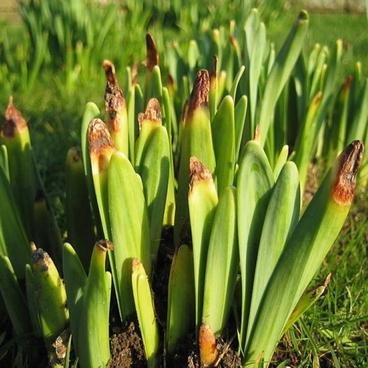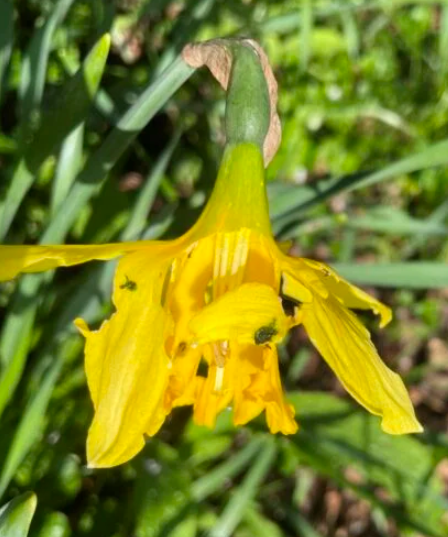Daffodil Plant
Daffodil (Narcissus spp.) is a perennial that grows 6-24 in tall, hardy in USDA Zones 3-9, prefers well-drained, rich soil, full sun to part shade, medium moisture, is not edible, and has medicinal uses.

Habit
Upright
Height
30 to 50 cm
Growth
Perennial
Soil
Well-drained, loamy
Shade
Full Sun
Moisture
Moderate
Edible
No
Medicinal
No
Origin
Europe
Climatic Condition
Cool, temperate
Temperature (°)
5 to 20
Humidity (%)
50 to 70
Potting media
Loamy soil mix
Fertilizers
Low nitrogen, phosphorus
Watering
Moderate watering
Plant Weight
50 to 150 g
Flowering Time
Early Spring
Soil Ph level
6.0 to 7.5
Water Ph level
6.0 to 7.5
Soil EC
0.3 to 1.0
Yield Per Plant
1 to 2 kg per plant
NPK ratio
20:20:20
life Span
Perennial
Health Benefits
Ornamental, toxic to pests, used in landscaping.
Suggested Grow Media or Potting Mix ?
50% loamy soil, 30% compost, 20% sand
Suggested Fertigation/Fertilizers
Fertilize every 2 weeks with a balanced fertilizer.
Common Diseases and Remedies
Basal Rot, Narcissus Bulb Fly, Botrytis Blight, Fusarium Wilt, Nematodes.
Rotting at the base of the bulb, wilting Holes in bulbs, stunted growth Gray mold on flowers and leaves Yellowing, wilting leaves, stunted growth Stunted growth, root galls
Avoid waterlogging, plant in well-drained soil Remove and destroy affected bulbs Improve air circulation, remove affected parts Crop rotation, avoid planting in infected soil Solarize soil, use nematode-resistant varieties
Fungicides with iprodione or carbendazim, No effective chemical treatment, Iprodione or thiophanate-methyl, Fungicides with thiophanate-methyl, Nematicides.
HEALTH BENEFITS
- Medicinal Uses: Contains galantamine, used for Alzheimer's treatment.
- Toxicity Warning: Can be toxic if ingested in large amounts.

